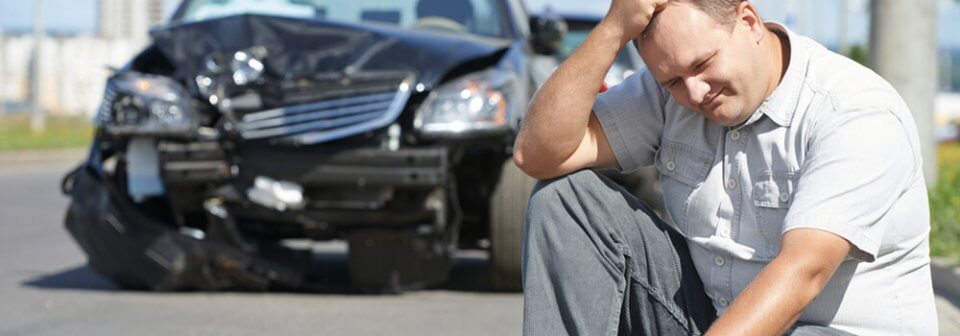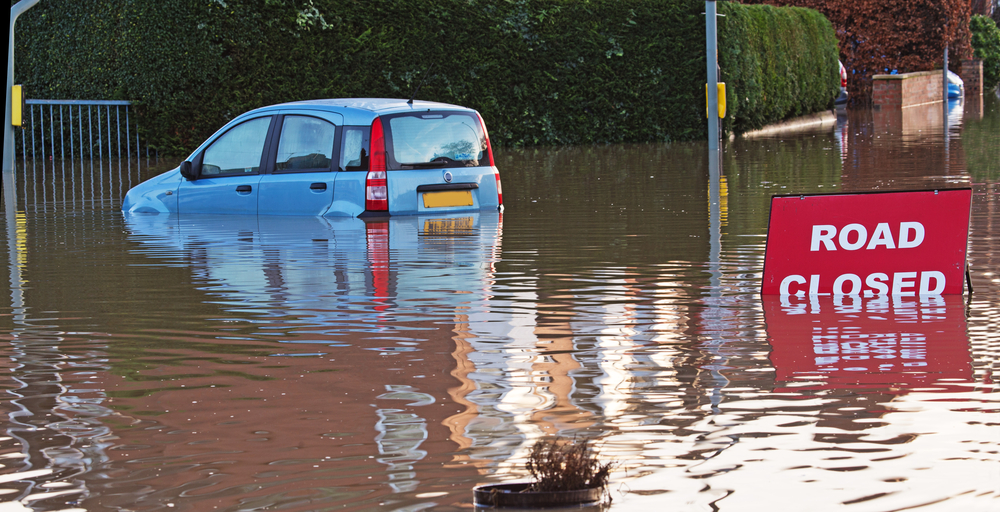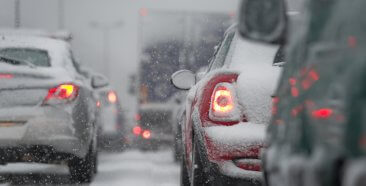
Auto insurance companies are required to pay you the fair market value of the vehicle prior to a devastating auto accident or natural disaster if you have what is known as full coverage car insurance. For those who carry only the state-required minimum liability auto insurance policy in an at-fault state, you’ll have to look to the other driver’s insurance if the accident was not your fault. If the accident was your fault in an at-fault state, the insurance provider will not pay a penny toward your own car. If you live in a no-fault state, your insurance will cover you up to the limits of your policy, regardless of who is at fault. So how much will insurance pay for my totaled car?
If you have full coverage, which includes comprehensive car insurance and collision auto insurance, the question becomes: How does the auto insurance company appraiser determine the fair market value and what if I disagree?
If your vehicle caught the brunt of an accident and your insurer declared it a “totaled vehicle” or a “total loss,” what does total loss mean? In some cases, the answer to this question will depend on state laws, since different states set different levels for what is considered totaled.
Hopefully, you’ll never get into such a major accident or have your ride underwater in a flood, but many insured people don’t understand what a total loss vehicle means for them. What makes a car totaled? How much money will you get in a total loss settlement? Let’s go through some information and answer some potential questions you may have if you have a total loss claim.
What Does “Totaled” Mean?
Generally, a car is totaled if a claims adjuster determines the estimated cost of repair to the car exceeds the vehicle’s value. However, this can vary from state to state as some state laws dictate that a totaled auto could be defined by a specific threshold. For example, the state of Alabama classifies a vehicle totaled if the damage exceeds 75% of its value rather than 100%. Check your state’s laws for specific details.
What Happens If My Car Is Totaled in an Accident?
If you have full coverage car insurance, you should be compensated for your loss. If you’re in a major car accident, contact your insurance agent and initiate a claim. Get the damage inspected at an auto repair shop. The shop will provide an estimate for the repairs to your insurer. The insurance adjuster will then determine whether or not the car is a total loss due to the repair costs. If the cost of repair exceeds the worth of your vehicle, your insurer will cut you a check for the damaged vehicle’s cash value, minus your deductible.
If you only carry liability insurance, then you will have to depend on the property damage liability coverage of the at-fault driver in an at-fault state or your own property damage liability in a no-fault state. Keep in mind that these limits may not be enough to fully replace the actual cash value of your vehicle. You’ll have to come up with money out of pocket to make up the difference.
What Determines the Value of My Vehicle?
A lot of different factors go into determining a car’s value. Your insurance provider will take into account your car’s age, mileage, condition, and resale value among other factors to determine its cash value and if it meets the total loss threshold. Let’s take a closer look at this information.
· How Much Damage Has it Sustained?
This isn’t something you can always see just by looking at a car that’s been damaged. For example, the auto could have a cracked frame, which may not be visible but is almost always an indicator of a vehicle that will be totaled. On the other hand, a car that looks heavily damaged with dents and other visible issues may be more easily repaired. This information can be determined by a mechanic and will be passed on to the claims adjuster.
· How Much Will it Cost to Repair?
Typically, if a vehicle will cost more than 70-75% of its pre-incident value to repair, the auto insurance company will declare it totaled. This is because there are other costs they factor in – like how much it will cost for them to put you in a rental while yours is being repaired.
· How Old is the Vehicle?
The year of your automobile is important. It becomes harder and more expensive to find replacement parts for older cars. If it looks like sourcing parts is going to be onerous and costly because your wheels are an antique, then it may be totaled.
· What is the Vehicle’s Make, Model and Trim?
Those initials after your automobile’s make and model count. You can see the difference between an LX and an EX model if you plug the specifics into the Kelley Blue Book’s What’s My Car Worth tool. When assessing the pre-accident value of your vehicle, there may be quite a difference between the trims.
· Will the Insurance Company Make Any Money on Salvage?
Maybe. Insurers will also be taking into consideration how much money it can recoup from the salvage yard – which makes its money by selling the parts off your vehicle. If the salvage value of your auto means money into the insurance provider’s accounts, it’s more likely to declare it totaled.

What If I Disagree With the Insurance Company About My Car’s Worth?
There are steps you can take if you disagree with the adjuster’s fair market value of your vehicle. And, in many cases, you will be right to do so since the insurance claims adjuster wants to pay the least possible amount for your totaled car. Here are some steps you can take if you want to dispute the appraised value.
- Understand the value of your vehicle: You have tools at your disposal for this step. You can use the Kelley Blue Book website listed above to start. You should also consider having a mechanic in your local area take a look and give you an estimate of value. If your estimates are higher than the insurance company’s figure, you are in a position to negotiate.
- Negotiating with your own insurance company (or the other driver’s insurance company if the accident was not your fault): Have the amount you will accept for your totaled vehicle in mind before entering negotiations. In many cases, you won’t have to go to court for this step, since they would rather settle this than pay attorneys and court costs. Ask your adjuster to prove their value so you can counter it with your own itemized list. If the worst happens and you cannot come to an agreement, consider consulting an attorney for legal advice. This would only be to your benefit if the cost difference between their offer and your counter is great enough that an attorney’s fees makes sense.
Do I Still Have to Pay Off My Loan on My Totaled Car?
If you have totaled a new vehicle that you have purchased on a lease or auto loan, the claim check will be payable to both you and your lender. You will have to negotiate with your lender on how to release that money. Usually, the lender gets paid first and then you would get whatever amount remains, if any.
There are times where the claim check won’t fully pay what you owe to the lender for a new auto, so you’ll still be responsible for the remaining balance on your loan. However, if you have GAP insurance added to your car insurance policy, the insurer will pay out the remainder of your auto loan on the totaled car regardless of its worth at the time of the accident.
When Should I Expect Compensation?
Most insurance companies will issue a check to you within days of finalizing the cash value of your totaled vehicle. You should ask your insurance adjuster when you can expect payment so you can make plans to get a new car.
Can’t I Just Keep the Car and Repair It Myself?
Typically, your insurance company will pay you your claim then auction off your damaged vehicle for salvage and keep the proceeds of the sale. However, in some states, you may be permitted to keep it if you wish, particularly if you own it outright. You will have to let your insurance company know immediately.
Once you have the totaled vehicle in your possession, most states will require you to register it with a salvage title. You will have to be responsible to ensure the proper repairs are made. It should be noted that repaired vehicles with a salvage title are usually difficult to trade-in for other vehicles at dealerships and many insurance companies won’t provide comprehensive or collision coverage for cars that were rebuilt. Keeping your totaled auto is typically more trouble than it is worth in most cases.
Find Affordable Auto Insurance Online Today
Now that you know what “totaled” means, you also know what kinds of auto insurance coverage can help you in case the worst happens. Freeway Insurance can offer you great rates on comprehensive and collision coverage, GAP insurance, and other insurance policies that fit your needs and your budget. Get a free car insurance quote online, give us call at (800) 777-5620 or stop by one of our convenient locations to start saving and stay protected.



